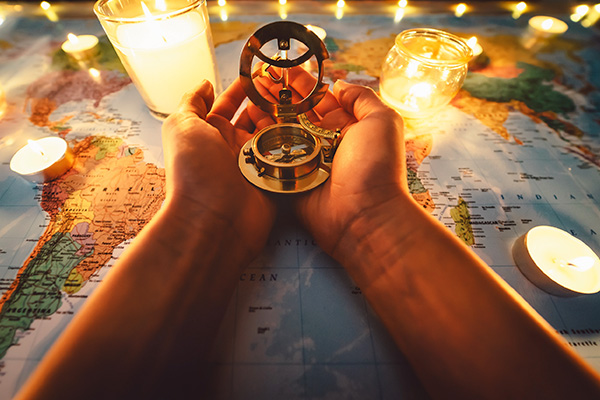self-esteem
How She Found Her Way Back
 Not every psychic reading begins in light. Some start in silence — the kind that weighs heavy in the heart.
Not every psychic reading begins in light. Some start in silence — the kind that weighs heavy in the heart.
When she first reached out to me, her question was brief, but the energy spoke volumes. There was pain behind her words, and she barely dared to ask: “Am I still in here somewhere?”
She had been in a relationship that, at first, felt exciting—perhaps even fated. “He swept me off my feet,” she once said. “I thought he saw me.”
And maybe he did, in the beginning — just enough to mirror back what she most longed to believe about herself. That she was worthy. That she was seen. That she was loved. But what unfolded was far from love.
The charm that once made her feel chosen gradually twisted into control, criticism, and a subtle erosion of her spirit. What looked like affection became possessiveness. What felt like closeness became confinement.
She had once been a vibrant, creative soul bursting with ideas and dreams.
But as time passed, she began to disappear. “I used to feel like a magical flame,” she confessed. “Now, I’m no more than a tiny heap of ashes under his tyranny.” Her sparkle had dulled. Her job unraveled. Her friendships faded.
But then she called me on Psychic Access and the runes reminded her that the embers of her true self and soul essence were still burning.
Why Positive Affirmations Really Work
 You often hear spiritual people talk about using affirmations to improve their lives. Maybe you’ve seen quotes online or heard advice like, “Just repeat positive affirmations every day and watch your life change!”
You often hear spiritual people talk about using affirmations to improve their lives. Maybe you’ve seen quotes online or heard advice like, “Just repeat positive affirmations every day and watch your life change!”
But have you ever wondered what it really means? It sounds simple enough — but how can repeating a few positive statements really make such a big difference, especially when it comes to something as big (and sometimes complicated) as love and romance?
Let’s start at the beginning: What exactly are affirmations? Simply put, affirmations are short, powerful statements that you intentionally repeat to yourself, usually to create a positive shift in your thinking and mindset.
Affirmations are best phrased in the present tense — as if what you want is already true — to help “install” these intentions or beliefs in your subconscious mind and thus shift your energy. For example, “I am worthy of love,” “I am confident and magnetic,” or “I attract healthy, supportive relationships.”
At first, saying affirmations may feel a little strange or even wrong — especially if your current inner dialogue is filled with self-doubt or fear. But with consistent practice, something amazing begins to happen. You’re not just saying empty words-you’re literally rewiring your brain and shifting your energy to match what you want.
But how does it work? How can repeating just a few words every day change the way you attract love or make that special someone finally notice you? Let’s explore both the scientific and the magical, metaphysical aspects of affirmations and uncover why they work and how you can use them to seriously level up your love life!
Keeping Shining Your Soul Light!
 We all have a soul light — a radiant energy within us that’s eternal and uniquely ours. It shines brightest when we’re true to ourselves. Each of us is different for a reason, and when we embrace that — especially when others might not understand — we tap into the magic of who we truly are.
We all have a soul light — a radiant energy within us that’s eternal and uniquely ours. It shines brightest when we’re true to ourselves. Each of us is different for a reason, and when we embrace that — especially when others might not understand — we tap into the magic of who we truly are.
When we compare ourselves to others, we lose sight of our own path. We can end up pretending to be someone we’re not, and that’s exhausting. It sets unrealistic expectations and keeps us from letting our true light shine.
Have you ever felt like you don’t fit in? Like you’re just… different? The first step to finding yourself is to step back from trying to fit into other people’s boxes. Sure, it can feel lonely at first, but if you stick with it and trust the process, you’ll find a confidence that’s unshakable. You’ll discover a self-esteem that allows your talents and gifts to flourish.
So many of us get caught up in worrying about what others think. This happens a lot in relationships, especially in the beginning. Maybe you’ve been there: You start dating someone, everything seems great, and then out of nowhere they stop texting or calling. Days go by, maybe even a week, and you wonder, “What did I do wrong?
Our first instinct is usually to blame ourselves. We overthink every little thing, digging up all our insecurities and past hurts. Sometimes it’s like a flood of old memories, bringing back childhood moments or difficult family dynamics. It’s draining, and honestly, it’s not helpful.
Shield Your Dreams From The Naysayers
 I’m in the midst of a major shift in my life – a bold leap forward that promises transformative and exciting changes for me and my family.
I’m in the midst of a major shift in my life – a bold leap forward that promises transformative and exciting changes for me and my family.
It is taking a lot of my time and requires a lot of work and personal sacrifice, as there are many moving parts that need to align to make it all happen. However, I know it will work and I trust in spirit’s guidance and divine timing. I’ve successfully navigated similar situations before in my life, so I’m confident it can be done.
As is often the case in these situations, I find myself surrounded by people who are projecting their fears and limitations onto me and my goals. Based on conversations with friends and clients who are supportive and encouraging, this seems to be a common pattern. What is clear to me is that these are people who have chosen to live very different lives from mine.
For example, I have a relative who has always lived in fear and has repeatedly tried to discourage me from every endeavor I’ve ever pursued — almost all of which have been successful. The few that have not worked out for the best I consider valuable life lessons.
I started my first business when I was 26 years old. This family member scoffed at me, saying it was too risky and that I was wasting my time and money. Well, that business ended up paying more than just my bills for over a decade, while many of my peers spent the best years of their lives in soul-destroying dead-end jobs. It allowed me, for example, to buy two houses and several new cars, and best of all, I loved what I was doing!
Forgiving Yourself Is A Spiritual Necessity
 Self-forgiveness is more than just a mental health recommendation – it is a spiritual necessity. It is vital for the spiritually aware person to release guilt, self-blame, and self-criticism, because forgiving oneself is crucial to both personal well-being and spiritual progress. It allows for healing, growth, and the ability to live a more fulfilling and harmonious life.
Self-forgiveness is more than just a mental health recommendation – it is a spiritual necessity. It is vital for the spiritually aware person to release guilt, self-blame, and self-criticism, because forgiving oneself is crucial to both personal well-being and spiritual progress. It allows for healing, growth, and the ability to live a more fulfilling and harmonious life.
Failure to forgive ourselves can have profound personal and spiritual side effects. Carrying guilt and self-blame leads to chronic emotional distress and contributes to anxiety, depression, and low self-esteem. Over time, this can manifest itself in physical symptoms such as headaches, fatigue, or even chronic illness.
A lack of self-forgiveness undermines self-worth and hinders personal growth and development. Difficulty forgiving yourself also strains your relationships with others, as it can lead to withdrawal, defensiveness, or projecting negativity onto those around you. Without forgiveness, our negative feelings toward ourselves can fester and damage even our most cherished relationships with our loved ones and friends.
Holding onto guilt and self-blame blocks the flow of positive energy through the chakras and hinders spiritual well-being. For example, guilt often stagnates in the solar plexus chakra, affecting one’s sense of personal power. Self-forgiveness is essential for clearing such blockages in the energy field.
Forgiveness is also essential to achieving inner peace and harmony. Without it, one can experience constant inner turmoil and restlessness. When we hold onto guilt, shame, or self-blame, parts of our spiritual essence or inner divinity are suppressed or disconnected. It causes separation from one’s spiritual path or a sense of disconnection from spirit and the divine.
The Self-Affirming Power Of Saying No
 Are you the kind of person who has a hard time saying “no,” even when your heart isn’t in it?
Are you the kind of person who has a hard time saying “no,” even when your heart isn’t in it?
Maybe you’re afraid of disappointing others, afraid they’ll distance themselves, or afraid they’ll stop liking you if you say no. Maybe your introverted side just wants to be liked and accepted by everyone, so you agree to things – even if it drains you.
I’ve experienced this myself and seen it happen to many people who come to me and ask, “How can I say no without feeling guilty?” or “If I don’t say yes, will I lose my connection with this person?
Saying “yes” out of fear, guilt, or obligation may be the easy way out in many situations, but it usually comes at a high cost to your personal and spiritual well-being.
Let’s acknowledge something important: You are enough just the way you are, and you are worthy of peace, joy and happiness. If someone truly values you, they’ll respect your boundaries, even if it means saying “no” once in a while.
On the other hand, if people cut you off because you set boundaries, they may not have been the healthiest presence in your life to begin with. True friends and meaningful relationships will respect your choices and understand your reasons without demanding constant explanations.
Over time, I’ve seen the toll that over-commitment takes. People who constantly say “yes” often end up feeling drained, overwhelmed, or even resentful. Some develop physical and mental health problems because they feel trapped by the constant need to please others. In some cases, burnout and depression set in, all because saying no felt like an impossible task.
